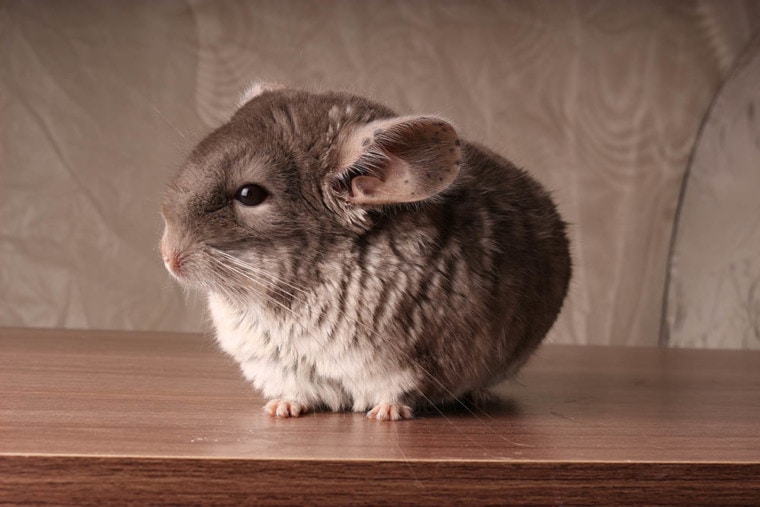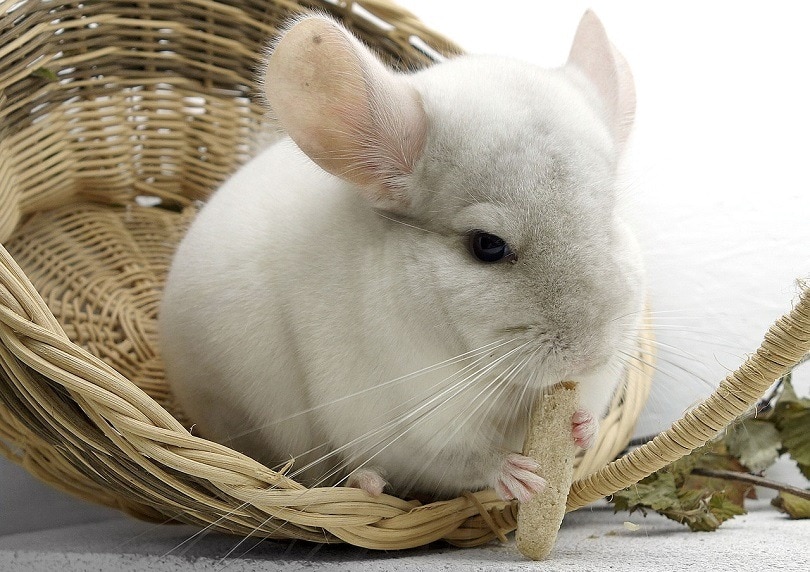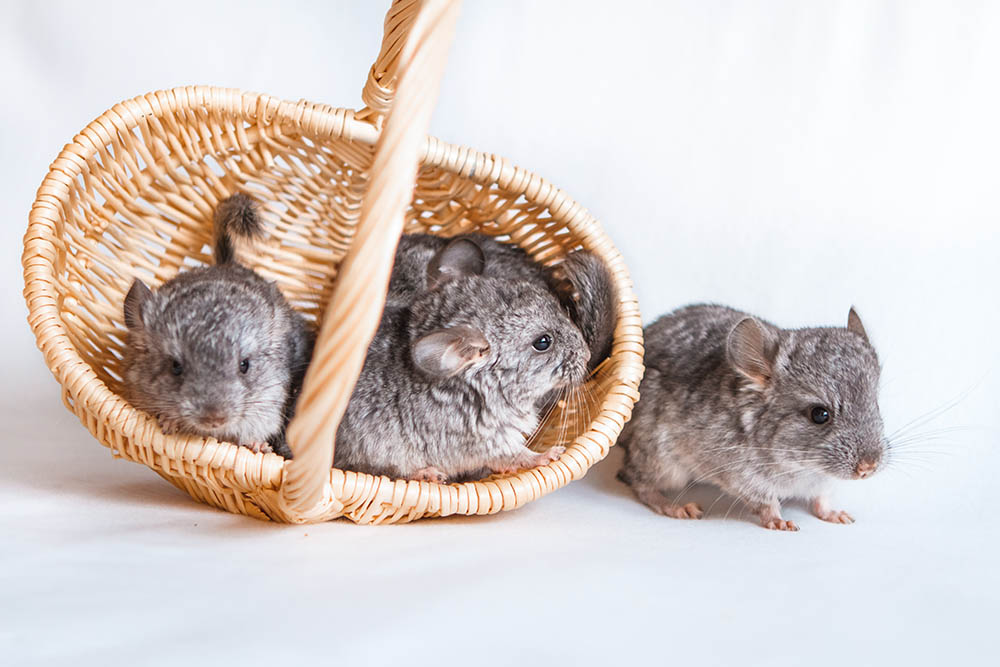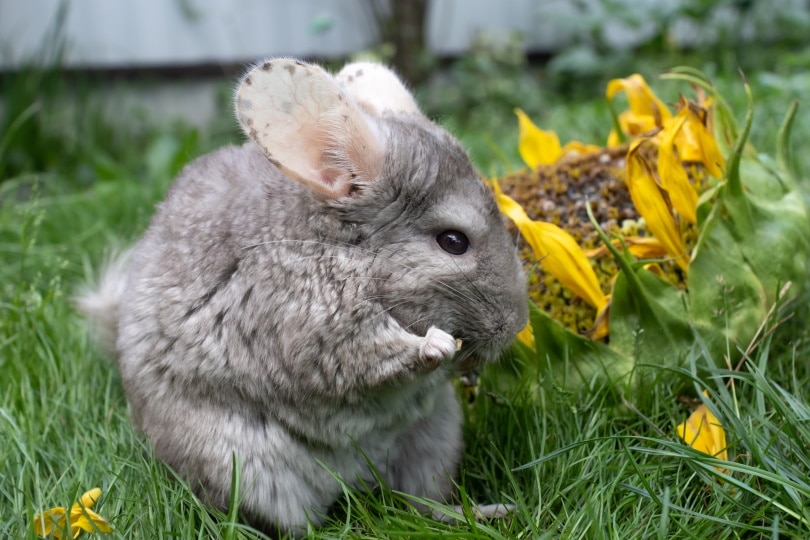
Most people who know anything about chinchillas know that they take dust baths instead of normal baths. In fact, even if you don’t know anything else about these adorable rodents, you probably already knew that. But why is it so important to avoid giving chinchillas normal baths, or even getting them wet at all? Do chinchillas die if they get wet? That may sound extreme, but also may not be totally off base. A chinchilla getting wet can lead to severe health issues. Here are the things you need to know when chinchillas get wet.

What Happens if Chinchillas Get Wet?
It can be exceptionally dangerous for a chinchilla to get wet, even if it gets just a little bit wet. A single drop of water isn’t cause for major alarm, but any amount above that is hazardous. There are two primary reasons that it can be so dangerous for a chinchilla to get wet, and both reasons are related to the chinchilla’s famous coat.
Chinchis have coats that are deceptively soft. The softness of the coat makes the coat feel like it should be lightweight, but their coats are extremely dense and tightly packed with hairs. The denseness of the coat can lead to any amount of moisture being trapped deep within the coat and drying very slowly.

The Perfect Environment for Bacteria and Fungi
What happens when you have a coat that dries slowly is that the perfect environment for the growth of fungi and some bacteria is created. If you run a load of laundry and you forget about it until your next laundry day a week later, you’ll immediately notice the foul smell of the clothes that were left damp. A similar thing will happen with a chinchilla that gets wet since the coat won’t dry properly. Fungal and bacterial skin infections can be deadly for an animal as delicate as a chinchilla.
Lower Body Temperatures Are Dangerous
The other issue that arises when a chinchilla gets wet is that the moisture collected near the skin lowers the body temperature. This can make it nearly impossible for the chinchilla to maintain a safe body temperature. These animals are very sensitive to changes in temperature and do not do well in temperature extremes, so staying damp and cool can quickly lead to death. The stress of staying damp and cool can also depress the immune system, leading to an increased risk of infections like pneumonia developing.
Why Do Chinchillas Take Dust Baths?
Since chinchillas really shouldn’t get wet, they need to have a way to maintain a clean, healthy coat. They accomplish this via dust baths. “Dust” is a bit of a misnomer because the dust that wild chinchillas bathe in is closer to fine sand and is comprised of small particles of things like clay, volcanic glass, and rock. Commercial chinchilla dust is often comprised of volcanic ash. Chinchillas roll themselves in this dust to help distribute natural oils across the skin and coat, remove debris, and keep the coat lush and healthy. Dust baths don’t bring the same risks that a normal water bath would bring for a chinchilla.

What to Do If Your Chinchilla Gets Wet

Conclusion
There are challenges that come with keeping a chinchilla due to the fragile nature of these cute animals. One of the most important parts of keeping a chinchilla is to ensure it stays dry and healthy. Letting your chinchilla get wet can be deadly, so it’s imperative that you maintain a safe enclosure that doesn’t allow them to accidentally get wet. Stick to dust baths for your chinchilla and enjoy the show they put on at dust bath time.
Featured Image Credit: Natalis.ph, Shutterstock







